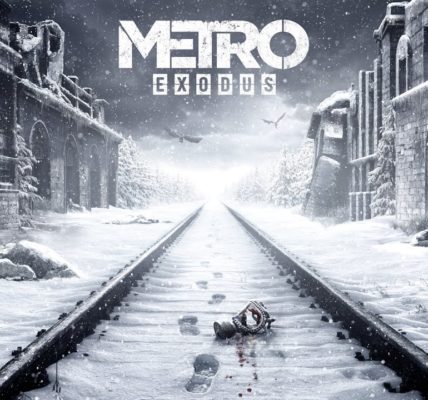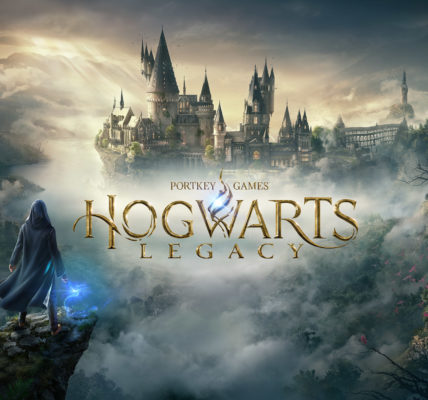Since I have finished my first playthrough, failed the second playthrough (Dark Urge hurts so much!) and I am right in the middle of the third playthrough. I figured it’s about time to properly review Baldur’s Gate 3. Now it has been about a month since the game was released, so just by the number of playthroughs mentioned – considering one has to work regularly to pay the bills – you can guess how much I appreciated this game.
For many people Baldur’s Gate 3 will be Game of the Year, for many it’s going to be a game of a lifetime. In any case this is not an average game title. It’s a title which will have a real and long lasting impact on our collective culture – and I do not just mean games. Also despite multiple gaming companies’ shared pain in the arse, IT IMMEDIATELY BECAME a golden status for any RPG narrative experience. From now on all games will be compared to it, regardless if producers and devs like it or not.
So without further ado let’s dive into what makes Baldur’s Gate 3 so damn near “absolute” perfection (pun intended ;)). I have broken this review into multiple pieces to better describe why this game is so amazing.
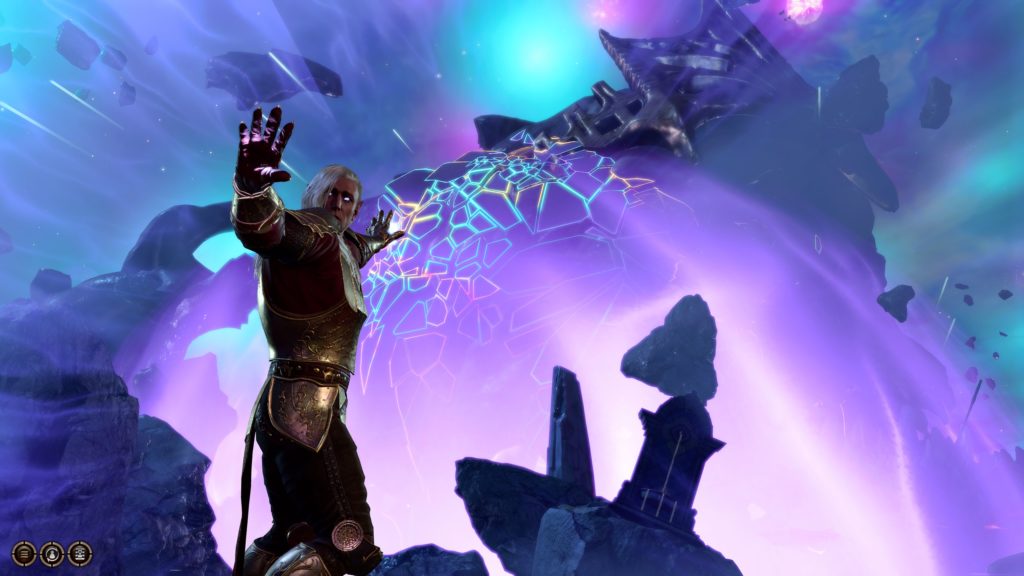
DnD Sauce – Why? Does it taste good?
If you are a Larian Studios fan, same as me, or maybe just a game enthusiast you have probably seen a video with Sven Vincke, owner and founder of Larian sharing DnD sauce with his team to create the math base behind every damage caused or received within the game. Now The sacred DnD sauce is obviously DnD 5e mechanics – aka. set of rules by which a DnD game has to adhere to. Every class, every bonus is defined by this. Now there are limits to it of course – there is only as much time to develop the game so you cannot put in all additional rules. But the core mechanics, the most important classes, races and subraces all made their way to the game. This alone is an incredibly solid base on which you can build your game narrative.
Now if we were to play comparisons – yes – gameplay mechanics of BG3 seems simplistic compared to Pathfinder games (Pathfinder: Kingmaker & Pathfinder: Wrath of The Righteous). But that is because Pathfinder games were developed based on a different RPG system – Pathfinder.
Funny enough Pathfinder RPG was built on the DnD 3,5 system, which is way different than DnD 5e, but it’s still DnD. I will not go into details but difference between DnD 5 & 3,5 -depending on who you ask may sound like: “The system was simplified to provide smoother, faster and more engaging combat” OR “The system was oversimplified to make more peeps play the game”. Regardless which opinion people have however the truth is that DnD 5e inherently is a simpler mechanic. And this is why any comparisons like this are basically pointes.
I for quite some time have been in favor of DnD 3,5 however I did not experience any nostalgia or regret over playing the 5e mechanic. Partly perhaps because I was so enthralled by the story. And partly because 5e is such a known and common mechanic that it never felt out of place. That said – there is room for improvement for sure, should Larian ever want to expand. A large number of prestige classes, subclasses, a ton of spells or additional skills never made it to the BG3. But this is not a complaint – this is an opportunity. In the same way Pathfinder WOTR introduced shapeshifter class as a DLC, Larian could make adjustments to mechanics.
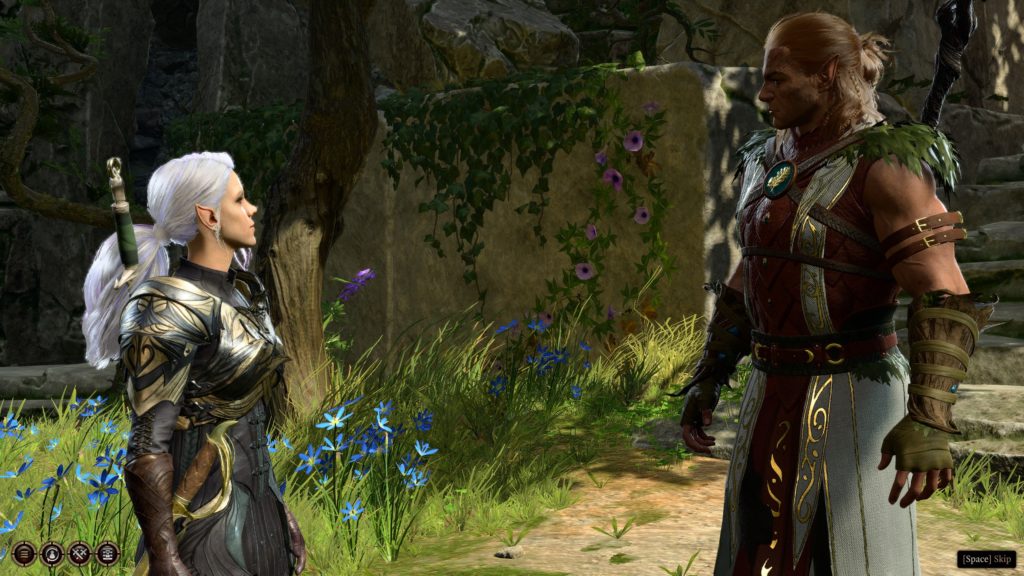
Leveling Up
Leveling up prompted some discussions in the BG3 community. Keeping in mind that we are a bit restrained by mechanics, there have been some complaints that in final ACT3 we do not experience leveling up as well as we’d want to. For myself I did feel a slight imbalance related to leveling up. During Act 1 I leveled up to lvl 6, and if I remember correctly I started Act 3 at around lvl 9-10, which means that at some point during Act 3 it did feel like I stopped leveling.
Now in DnD5e you can just lvl as much. The Player Handbook lists up to 20 levels. However the higher the level the more complicated leveling up becomes – which is not a surprise and not a bad thing inherently. Now at some point leveling up becomes video-game-breaking.
Please mind that highest levels can be maintained while playing DnD pen and paper. World altering spells can be executed when you have no executable boundaries. For video games it’s different. According to Larian this is what character leveling stops at lvl 12 in the game. I do understand that – to an extent. Mechanical challenges that come at higher levels are demanding for Dungeon Masters when playing table top, to put in on top of existing games is just difficult, or borderline impossible.
That said, there is definitely room for improvement. The most common explanation for not leveling up is the “Wish” wizard spell, which can basically alter reality and can be limitless pending on the type of the game we are playing. However this spell is available to mage at spell lvl 9 (spell circle), and this circle is available to the wizard when wizard levels to 17. Which is levels away from what’s in the game.
Of course “Wish” is not the only spell that presents mechanical problems, there are more problematic spells even before 9th circle – but I also do not believe that smart people at Larian would not find a way to address these. Again I would say that the only real limit the development was facing, was the time limit.
Then again somewhere deep inside I still hope for DLC. Although it does not seem probable at this point.
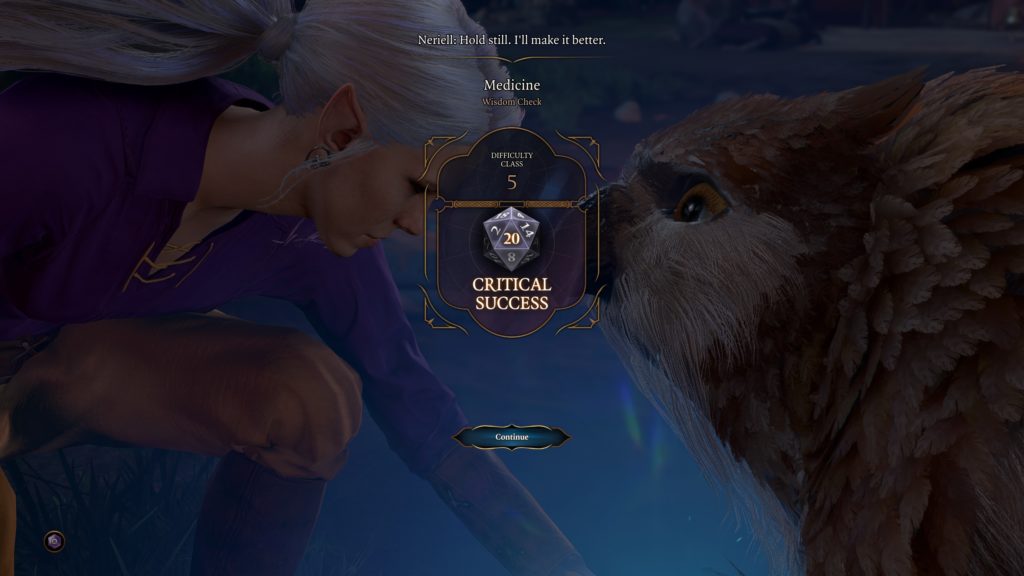
Turn based vs. Real Time with pause
Personally I do not understand why this exact part of mechanics causes discussions among the community. This is a clear design choice. And in some instances both fight systems have been recently introduced in latest CRPG titles. Yes of course you can prefer one over the other. But regardless, both systems are characteristic to isometric titles and complaining over this is like complaining that a sandwich has bread.
All in all I would say that mechanics are solid, there are no obvious shortcuts or game breaking problems. But the mechanics – however well prepared – is not the heart and soul of BG3. And not the reason why this game is so amazing. The core of Balduran City is narrative experience.
Narrative Experience – Main Quest
The main quest is the eldest and the best motif in DM’s book of quests. Hard to say how many campagins started the same. Thousands, hundred of thousands, more? In summary there are 3 basic attributes to this narrative – as ancient as storytelling:
- You were hurt / poisoned / broken,
- You don’t know / don’t remember why someone would do this to you,
- You need to search for a cure.
That said there is a reason why this narrative is such a classic. It really does work and it provides a great playground of options in terms of how the events should unfold. Even if the main quest is based on such a simple premise it unfolds to be more and more complex with each act. Until you learn that you are mixed up in something of cosmic proportions.
Now, where the game really shines is within the main quests ambiguity. I do not remember ever while playing to be 0% sure what consequences will my choices have. Am I trusting the right people? Or am I gullibly playing to someone else’s tune? Even after the game has ended I still don’t feel like I have all the answers. Which is quite great. Especially since this game is designed for multiple playthroughs.
What I am sure though – and the game taught me, is that every choice, sometimes even minute, minor choice can have an overwhelming consequences following. All leading up to how the game will end, and what will be left when the chips are down. And that is exactly what I would want from a game this size and scope.
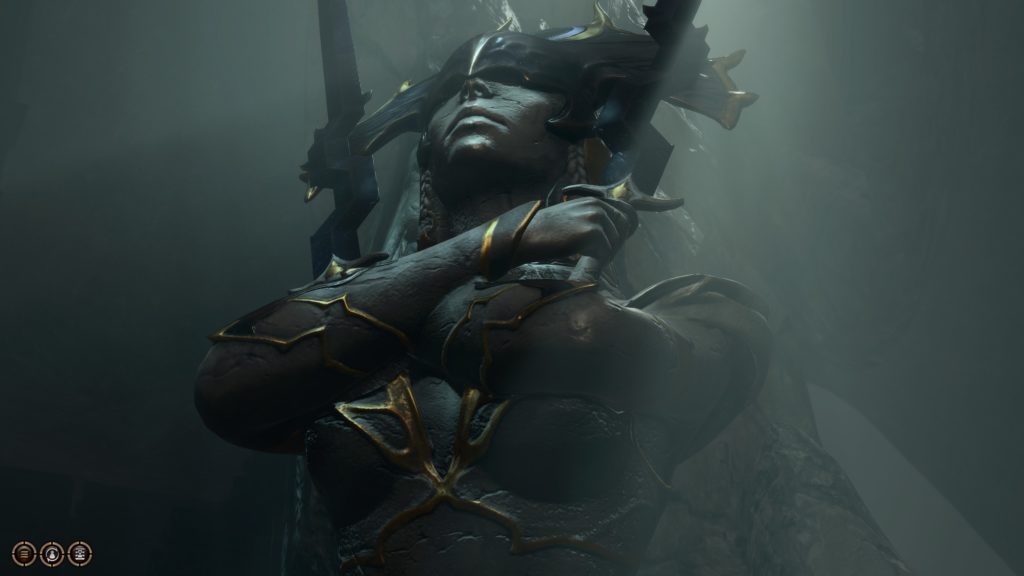
Side Quests & Companions Quests
Side quests and companions quests made an interesting impression on me. In any other game I had a feeling that both of these quests were very distinctive from the main quest. Regardless if they were interesting or not. Baldur’s Gate subverted that for me and I would count it as an accomplishment. I was not, at any point, or almost at any point, feeling I was doing a side quest.
For the entirety of the game I was playing my character, traveling and enjoying adventures. And even if I knew that as an adventurer my main task was to defeat the Absolute – which was the main quest I never felt I strayed from that by doing something unrelated. And it was for both companion quests and side quests. Even though there were typical fetch / kill quests in the game.
This is an entirely new gaming experience for me, and I am still unsure what caused it. A huge difference was possibly made because all in game scenes were animated which leveled immersion to something no one in gaming ever experienced. But I am yet to explain this phenomenon.
One thing though for sure – companion quests were amazingly written. Characters – npc’s or otherwise were amazingly written. Each one had very clear and specific character traits, goals set, beliefs and even fears. I do not remember ever growing so fond, and so attached to my pack of adventurers in game.
The sheer number of narrative lines written for each of them was amazing and helped to flesh them out in a way no character ever was written before in a video game. The ability to interact with them freely and see how they are responding to the surroundings, your decisions and your actions is a lot. And judging by community reaction this resonated with everyone playing the game.
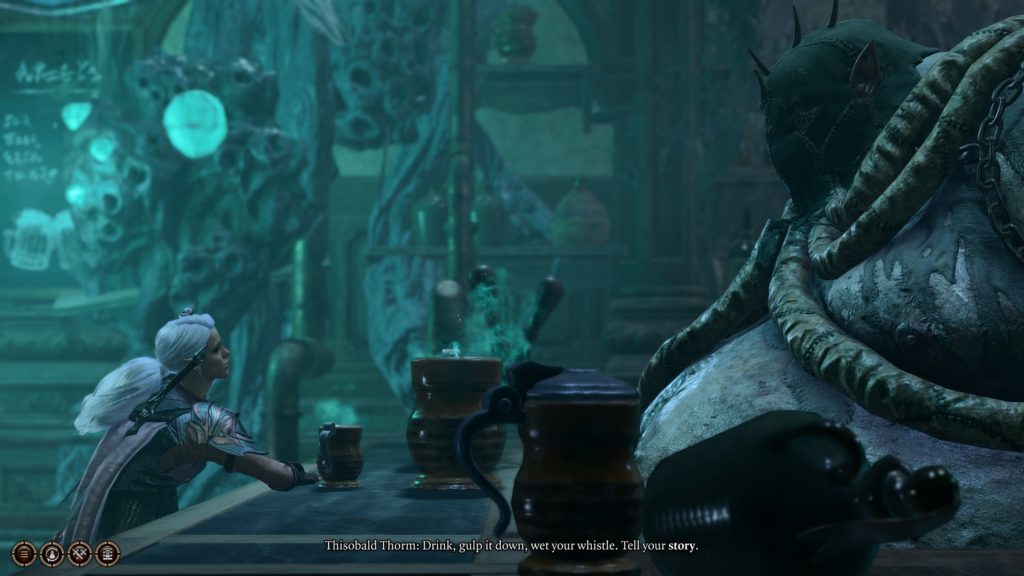
Romances
Surprisingly romances played quite the part in the popularity of the game, especially since the “bear scene” was first released. I was originally uninterested in that aspect of the game, since it kind of made me feel uncomfortable, however I did change my mind. It’s been quite some time since I have seen the concept of romanticism executed in any cultural product. And I really did enjoy it. Especially since we are potatoes living on one giant potato and our lives and culture becomes more and more pragmatic each day. Which annoys me. This was a beautiful escape.
Romances also play a big part in character building of our companions, which makes a lot of sense. The way you view love or any other relationship is a part of who you are as a person. Although that is something I pretty much never saw in an RPG game before, even if it’s present in movies or books. Maybe this is just a new mature form of character building in rpg games? If so, I am all for it.
As to nude scenes – they were there. And I was quite surprised to learn the variety and creativity that went into these scenes (Gale astral sex scene for one… ). Were they necessary? No. Were they interesting? Judging by the number of people commenting on those I will say: Yes.
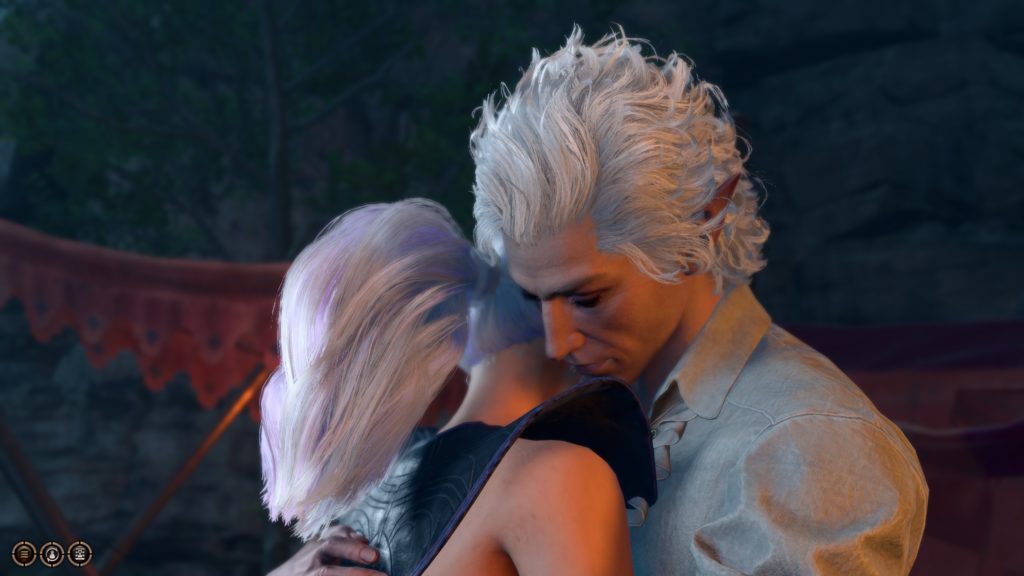
Game Design & Soundtrack
Environments, items, characters – every aspect of the game was perfectly designed. There is literally nothing to add here. This game is unequivocally a new unlocked level in game design, and it will be like that for years to come. Animation of every game scene and dialogue elevated the experience into something completely new. If we are talking game immersion – I believe this is the first game in years that made a real step forward.
Acting and voice over are also perfect. And while playing you can almost feel that BG3 voice actors had a real blast with some of these lines. And it did not surprise me. Leazel lines for example – the seductive ones – are pure gold. I laughed my ass off while listening to them.
As to the soundtrack – what can I say – it will be a part of the pantheon of the best video games soundtracks created till the end of time. Testament to that being that it’s been a month in since the game was released and I am still notoriously playing the soundtrack every day. It is even impossible to pick just one – the best – song out of it. All compositions are unique and amazing. And they work perfectly in game. Attached video will attest to that.
Wishlist
Now up until that point I did not list any negatives. And I will not do it now either. I will however list a couple of things that could have been executed better, altered maybe a bit, or built on to make it a better experience for me. It is my guess that some of these may have been concepts that did not make it into the game for lack of time.
- Withers
It bothered me a bit that there were no dialogue options to make him know, that we – as a player – know that he is Jergal. If I were playing a tabletop and I would have a literal god in my camp I would enquire. So there is something missing there. - Volo, Arabella, and the others
The additional NPC’s that have joined your camp and traveled with you sometimes felt not exactly interactive. Especially in Volo’s case. I mean come on. We are traveling with the most renown bard in all of DnD and he does not have a single quest for us? The only dialogue that we can have with him ends up with him removing our eye? Something doesn’t feel right about it. - Off/On switch for romances and sex scenes
Now even though I did enjoy romances there were some people who did not want them at al. It would be useful to have a flag that would just automatically disable romance options. And also even though this game is for 17+ we all know kids will end up playing it. So an option to disable sex scenes completely would be nice as well. - Friendships
If we can work to establish a romance in game it would be nice if there was a different, clearly established path, to build friendships with these characters. Relations not based on attraction are also important after all. But sometimes when I connected with my camp buddies I wasn’t sure whether I am befriending them or romancing them. In real life there is a clear difference in communication – and that should be better mirrored in game. - Unusable tools
There were many unusable tools in the game that would be nice to have. Rope for one. I carried it for the entire game, never to use it. Magnifying glass is another example. I was 100% sure it’s to be used somewhere in the game – but it wasn’t. Some workbenches as well. Although with that last one there is a possibility that I just did not discover how to use them. - Inventory Management
Inventory management at your camp is inconvenient. It would be way more comfortable if you could switch equipment for all characters instantly – even if they are not in your current set up. Much like in Pathfinder games, where you could level up, and equip characters at all times. - No use for guild sings
It might be a bit more fun if certain fractions would be more engaging. For instance you could receive and equip pins of different fractions. Which in turn could affect how other fractions respond to you. Imagine talking to Zhentharims having Harper’s pin pinned to your clothing. Also the pins themselves seem kinda incomplete. In the DnD universe Harpers pins are rare, they are like a badge of honor and obtaining those is not easy. So when you acquire one in Act1 it should have a narrative impact on NPC’s you meet. - Ending
Ending seems a little too short for my taste. I have grown very fond of my team and the animated scene was a bit unsatisfying for me. I would actually love to talk to all of them, maybe at a celebration party. Maybe actually getting to hear Halsing singing would be fun. Or finding out who wants to keep traveling with me, and who goes back home. Maybe hearing Volo and Alfira perform at my camp. I just wanted more from my ending.
Final Score
For a long time I was a huge fan of Pathfinder games. CRPG games have been my favorite since I was a kid playing BG1, BG2 and Incewind Dale. By the way, Durlag’s Tower trauma is real. The thing is that the expectations I had for BG3 were huge, almost to the point where I had no hope anyone, ever would be able to deliver. And yet Larian Studios managed to exceed those expectations. Effectively dethroning all my favorite games. So I am just going to go ahead and say it. There is no score appropriate for BG3, for it is the best game ever created. At least for my humble self.

